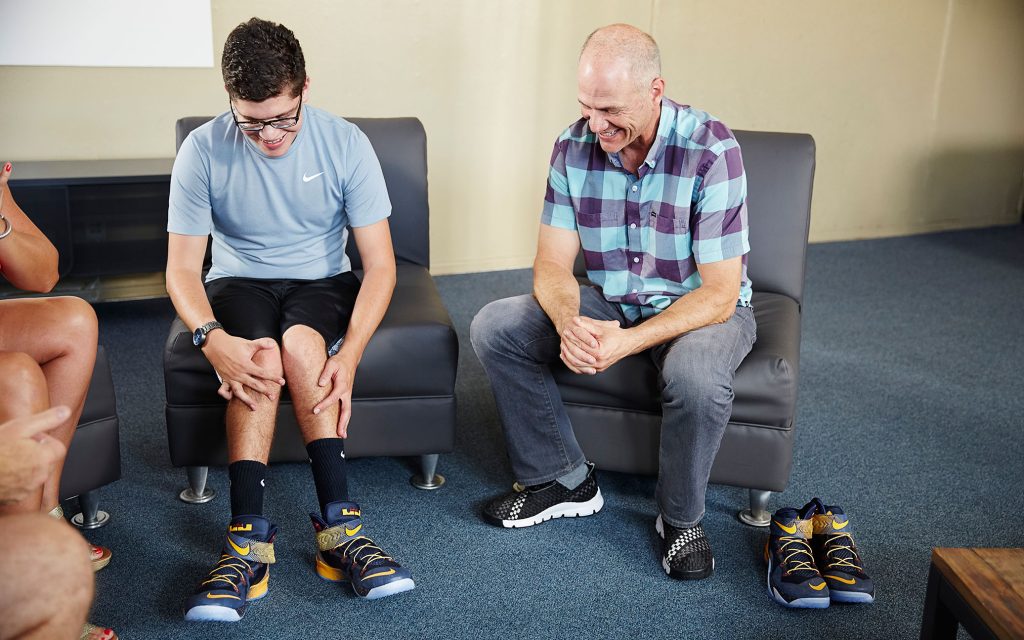
“The term “adaptive shoes” may not be commonplace, but it’s definitely not a new phenomenon. Shoes that are adaptive are made to provide greater independence and mobility for people with disabilities, limited dexterity or troublesome foot conditions.
These shoes can be adjusted to match the user’s specific needs, allowing them to move more freely and with more confidence.” [1]
“Adaptive shoes have features that can help with stability, comfort, and support, and can help people with limited mobility or foot conditions:
- Adjustable features: Features like adjustable straps, heel height, and Velcro closures can help accommodate different foot sizes or swelling.
- Removable footbeds: Can be replaced with custom orthotics or more supportive insoles.
- Stability features: Wider bases, reinforced heel counters, and non-slip soles can help with balance and stability.
- Comfort features: Memory foam insoles, cushioned arch support, and padded collars can provide a snug fit and relieve foot pain.
- Easy enclosure: Features like easy zippers or no laces can make it easier to put on the shoes.
- Openings: Openings can accommodate feeding tubes or medical devices.
- Stretchable materials: Stretchable materials can help accommodate different foot conditions.
When choosing adaptive shoes, you can also consider things like:
- Whether you prefer slip-on or Velcro styles.
- The color or fabric you want.
- How well the shoes fit your foot size.” [2]
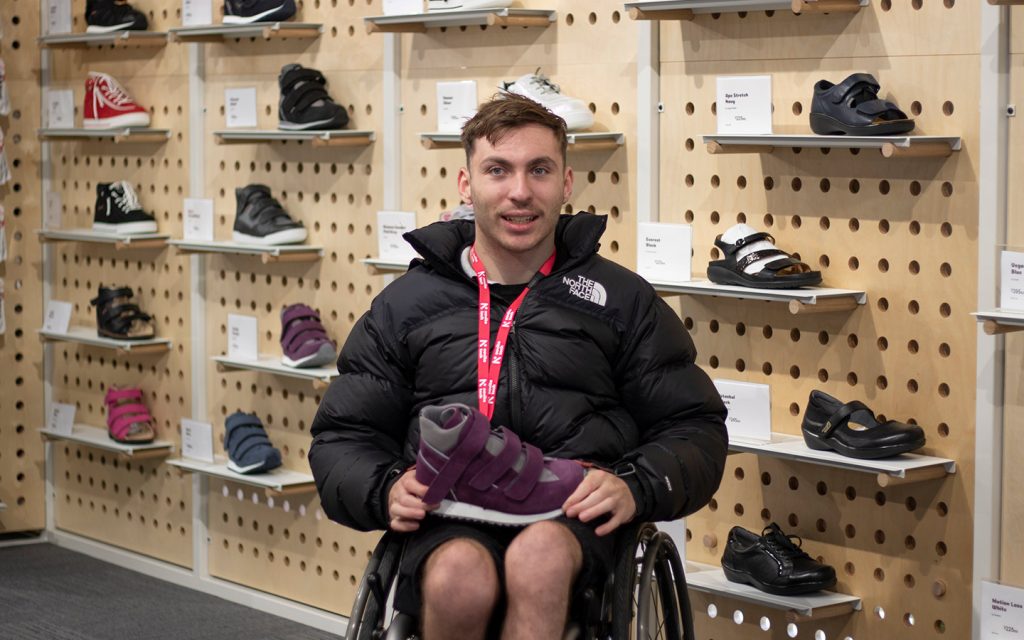
What Are the Benefits of Adaptive shoes?
“Adaptive shoes offer several benefits to the elderly and disabled:
Some benefits of adaptive shoes include:
- Comfort: Adaptive shoes are designed to mold to your feet and provide comfort.
- Stability and balance: Adaptive shoes can help improve stability and balance, which can reduce the risk of falls.
- Ease of use: Adaptive shoes can be easier to put on and take off, especially for people who have difficulty bending over or reaching their feet.
- Accommodation for swollen feet: Adaptive shoes can accommodate swollen feet, which can be caused by a variety of medical conditions or being on your feet for a long time.
- Orthotic-friendly: Some adaptive shoes are designed to accommodate orthotic inserts.
- Slip resistance: Many adaptive shoes are slip-resistant to reduce the risk of falling.
- Large openings: Adaptive shoes with large openings or straps that completely open can help patients maintain their independence and reduce the possibility of falls.
Adaptive shoes come in a variety of styles, including sneakers, boots, sandals, and dress shoes.” [3]
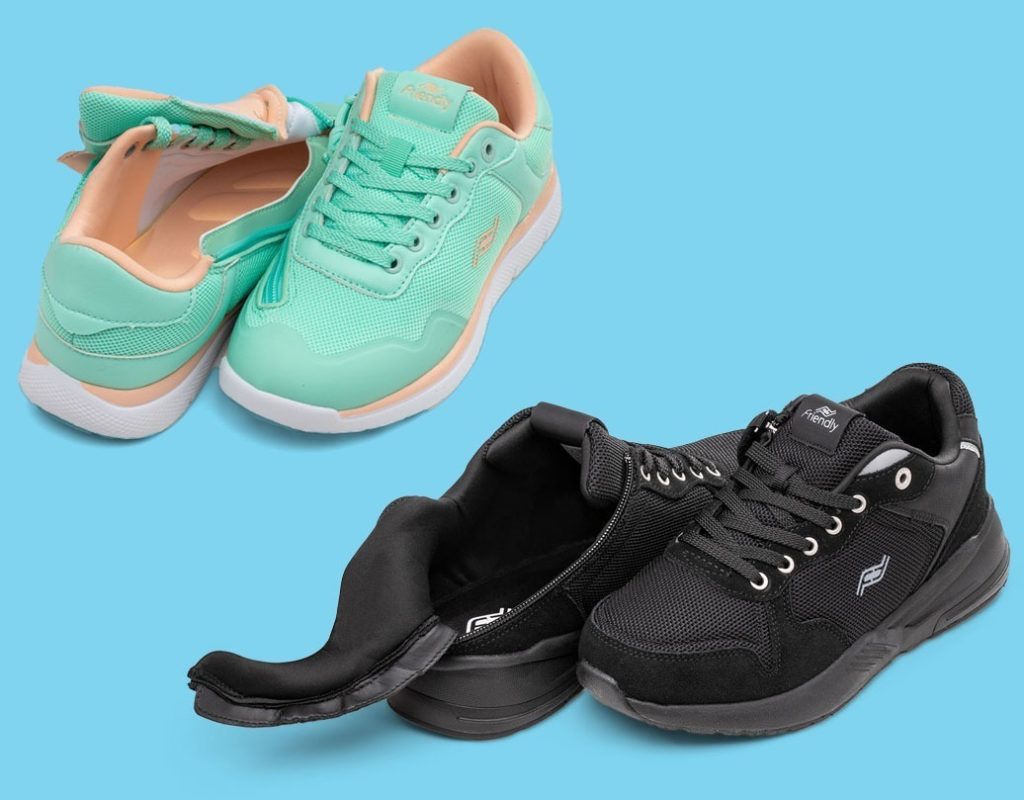
Adaptive Shoes Brands for People with Disabilities
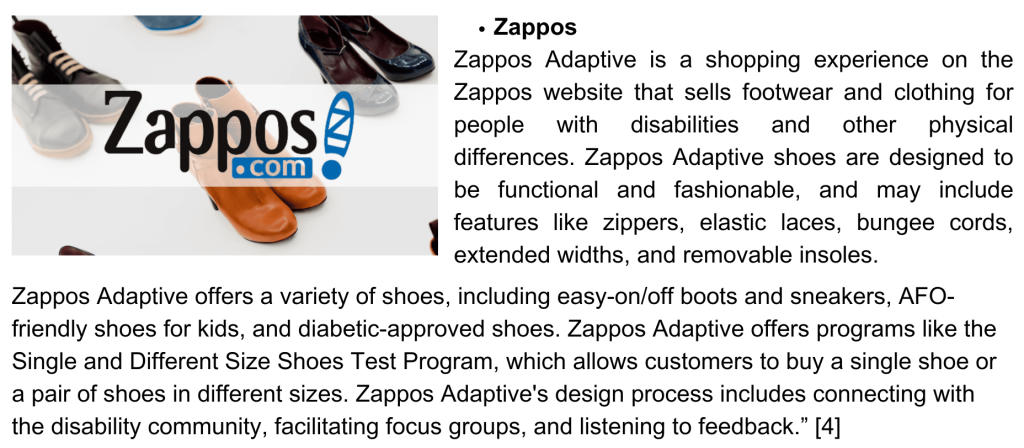
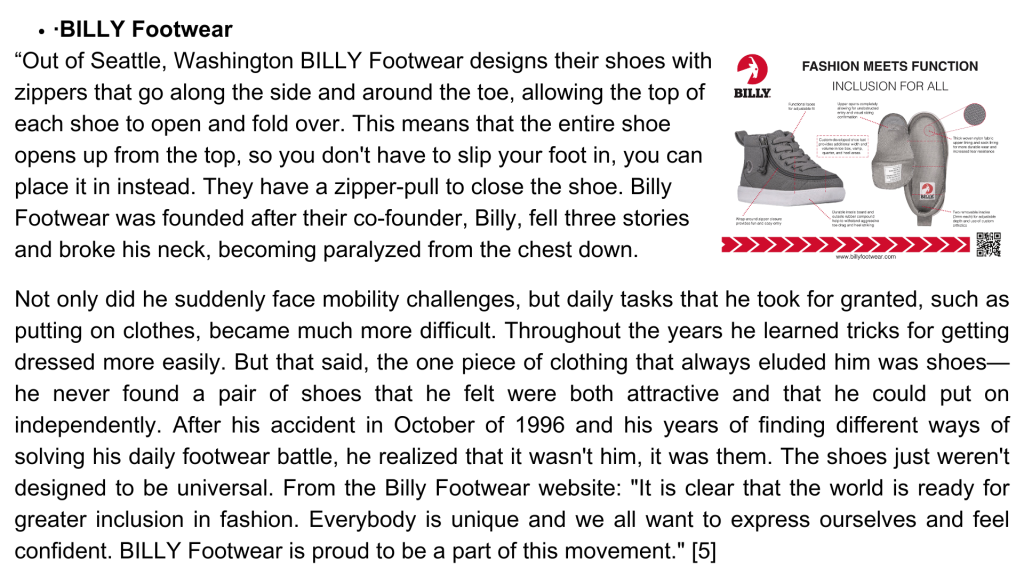
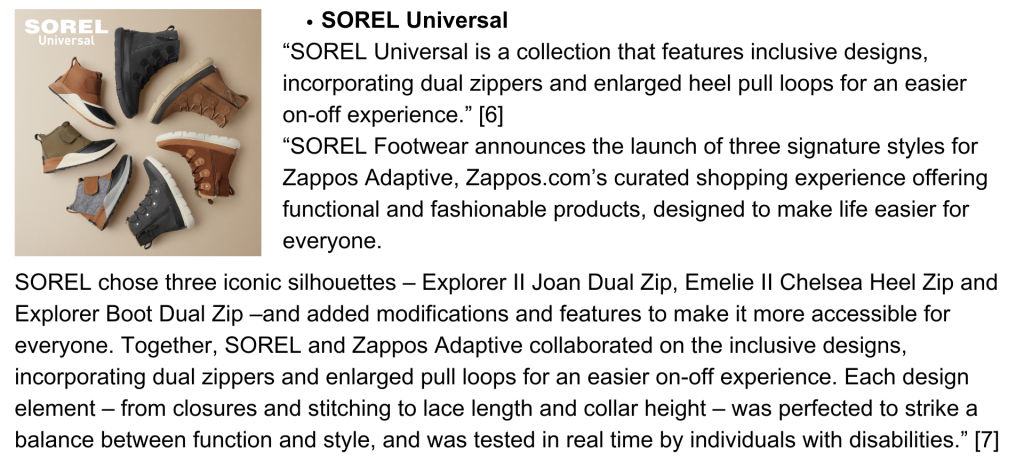
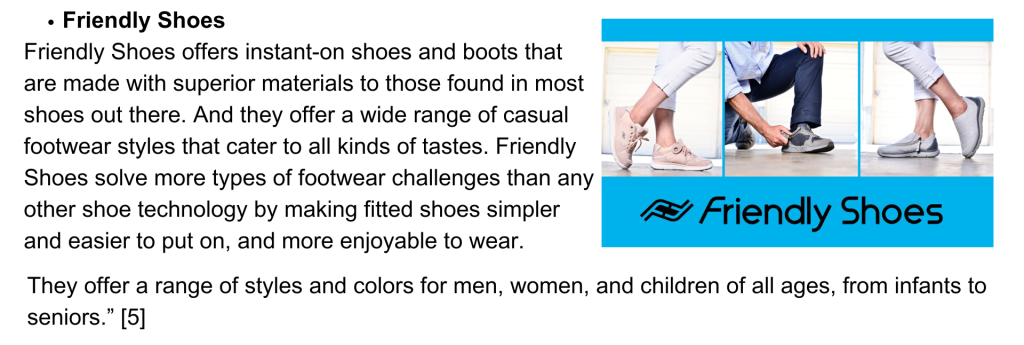
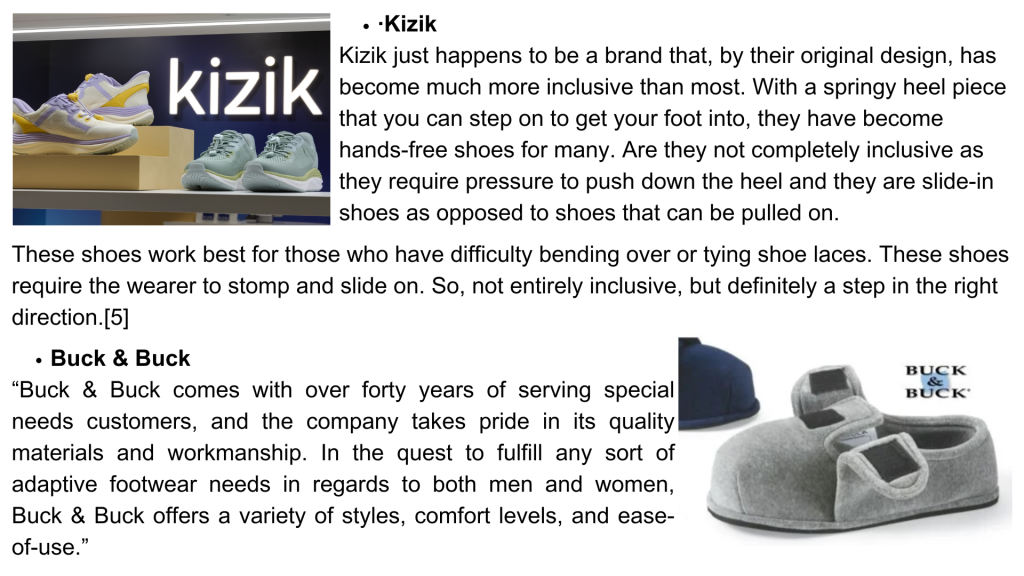

Single Shoes & Different Size Shoes
“Some people with disabilities only need one shoe or require two different size shoes to accommodate their needs. While this may seem as if it is not an option, many companies now offer singles programs or the ability to customize an order for different sizes. Companies like Friendly Shoes and Zappos offer single shoes and different size shoes.” [9]
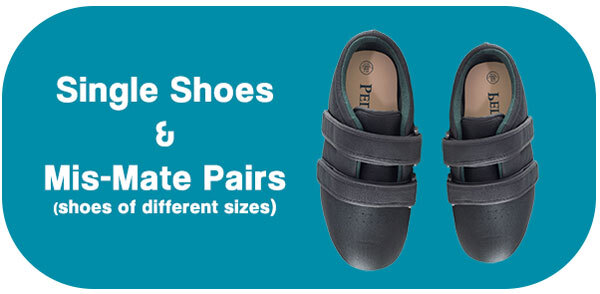
“Putting on and taking off shoes is a daily task many people take for granted as something easy, but it isn’t that way for everyone. While managing all the symptoms of a disease or disability is a huge effort, adaptive footwear can remove at least some of those challenges.” [10]
Resources
[1] https://propetfootwear.com/our-blog?p=unlock-your-mobility-with-adaptive-shoes
[2] https://www.google.com/search?q=Some+features+of+adaptive+shoes+include
[3]https://www.google.com/search?q=what+are+the+benefits+of+adaptive+shoe
[4] https://www.google.com/search?q=what+is+zappos+adaptive+shoes
[5] https://www.stephensplace.org/blog/5-adaptive-footwear-brands-for-people-with-disabilities
[6] https://www.amazon.com/stores/SOREL/SorelUniversal
[7] https://rehabpub.com/daily-living/sorel-footwear-launches-new-adaptive-styles/
[8] https://johnscrazysocks.com/blogs/news/john-s-crazy-socks-partners-with-zappos-adaptive
